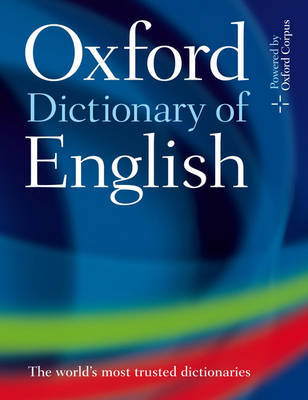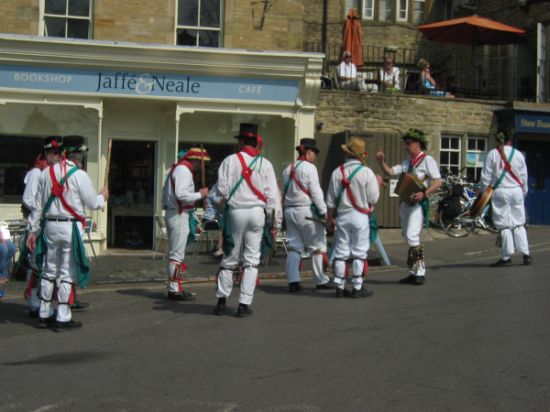| school magazines from WW1 |
 |
| music from the period |
 |
| the first in Wilson's excellent Victorian series |
| school magazines from WW1 |
 |
| music from the period |
 |
| the first in Wilson's excellent Victorian series |
The Seven Stories Bookshop in Newcastle has launched a range of bespoke licensed products featuring Nick Sharratt's illustrations to tie in with a new Jacqueline Wilson exhibition that launched at the Seven Stories centre last weekend.
Add a Comment
Former children's laureate Jacqueline Wilson is the latest high-profile author to take part in a fundraising benefit in aid of Brent's six threatened libraries.
Wilson will do the event at 6pm on 28th September at St Martin's Church in Mortimer Road, London, the same venue that hosted a packed benefit from author Alan Bennett in May.
Add a Comment
By Juliet Evans, OUP UK Publicity Manager, Dictionaries and Reference
A. They’re all in the list of ‘Top Ten Most Stolen Books in the UK’!
Weighing in at a rather hefty 6.6lb and measuring 11 by 8.5 inches, the Oxford Dictionary of English is no lightweight. Even so, it has appeared in a list of top 10 books which are ‘the most stolen’ from independent UK booksellers, published in The Times on 6 February 2009.
We guess it’s a dubious honour for Oxford Dictionaries to be on the ‘most wanted’ list of book thieves, but we’re in good company, as you can see from the list below.
The Oxford Dictionary of English (ODE) joins an eclectic mix of strictly practical reference books, fantasy and crime fiction, and children’s literature. All - except ODE - are paperback and/or portable.
 “Notably, ODE is the only dictionary to appear in the Top Ten,” says Catherine Soanes, editor of ODE, “You’d have thought that our smaller dictionaries, such as the Pocket Oxford or the Compact Oxford, would have been more pocketable (or hideable in a bag or coat) but book-pilferers obviously think that, with its 350,000 words, phrases, and meanings, ODE is the one worth risking prosecution for. Thank goodness that thousands of readers prefer to follow the legal route and buy their copies - and at £35, they don’t need deep pockets to do so.”
“Notably, ODE is the only dictionary to appear in the Top Ten,” says Catherine Soanes, editor of ODE, “You’d have thought that our smaller dictionaries, such as the Pocket Oxford or the Compact Oxford, would have been more pocketable (or hideable in a bag or coat) but book-pilferers obviously think that, with its 350,000 words, phrases, and meanings, ODE is the one worth risking prosecution for. Thank goodness that thousands of readers prefer to follow the legal route and buy their copies - and at £35, they don’t need deep pockets to do so.”
It seems that the ’literature lifters’ come in all shapes and sizes - from old ladies, to students, and from mums with prams (the ultimate getaway vehicle?) to people working within the publishing industry itself. So it seems you just can’t trust anyone these days. And you know you have to be very suspicious of people with long coats too - no book is ever to big to steal…
Of course, the loss of so many books has a very detrimental effect on booksellers, particularly on the small family-run independent stores. The Times reports that there have been cases of books being ‘stolen to order’, or placed online, and there have even been stories about books being passed around in pubs. It’s interesting to note that crime writer Martina Cole’s books appear at number 7 on the ‘most stolen’ list.
We talked a bit more to Patrick Neale of Jaffé and Neale Bookshop in the Cotswolds area of England, who says, “In my Waterstone’s days dictionaries were very popular with the thieving community. I never found the pub where all these ‘knocked off’ Oxford Dictionaries were being ‘fenced’. I wonder if the thieves checked that all their terminology was in there. I really don’t know where all those dictionaries went. But I suppose they were used for pub quizzes…”

Patrick says that he now has to keep a particular eye on local walking maps walking out of the door of his bookshop. But could it be that, in the form of traditional English Morris dancers (shown in the picture above), he has found the ultimate deterrent to would-be thieves, we ask?
Ten most stolen books from UK shops
1. London A-Z maps
2. Ordnance Survey maps
3. Terry Pratchett novels
4. Harry Potter books
5. Lonely Planet travel guides
6. The Lord of the Rings
7. Martina Cole novels
8. Jacqueline Wilson novels
9. Oxford Dictionary of English
10. The Highway Code
An “offensive word” in Jacqueline Wilson’s latest novel, My Sister Jodie (Random House, UK), will replaced with another as a result of three parent complaints, according to The Guardian. Three complaints? What is it with books that makes people jump on them? Movies and television have people swearing, having sex, and murdering each other, but nobody tries to get them banned or replaced.
My Sister Jodie has sold 150,000 copies in the U.K. since it was published last March, including through Asda, a supermarket chain that “is now in the process of withdrawing it from stores.” I find that so sad–removing a book on the basis of a word. Did they even read the book? Did they see if it spoke emotional truths, told a good story, helped illuminate something?
The word that people objected to was “twat,” which Jacqueline Wilson used intentionally to show cruelty, to show a “nasty character.” When a word is used in context, and it reveals things about the way people treat each other, should that word be deleted because some people find it offensive? I don’t think it should. I think books can help children and teens prepare and arm themselves for real-world experiences that they might not yet have had, in a way that just telling them about it won’t. I think those books are important. And it sounds like My Sister Jodie might be one of them.
I haven’t read My Sister Jodie yet, but I’ll bet that Jacqueline Wilson was drawing out the characters, and that the reader would not sympathize with the boyfriend putting down the girl. When so many children and teens experience misogyny or bullying, shouldn’t they have somewhere to turn to that accurately shows some of their experience, while offering some hope? (Wilson’s books usually seem to offer hope.)
What do you think? Should a word be erased from a book?
Thanks to Shelf Awareness for the info.
British children's writer Michael Rosen weighs in on the Jacqueline Wilson naughty word controversy.
Or at least her characters aren't allowed to. The BBC reports that the second printing of Dame Jacqueline Wilson's latest novel, My Sister Jodie, will be reprinted after the publisher, Random House, received three complaints and a message from ASDA supermarket mega-chain (which happens to be owned by WalMart,) that they will not sell editions of the book with the offending word. This is an issue
Bookninja thinks that Jacqueline Wilson should be our official Children's Laureate. Of course, Bookninja is Canadian, so perhaps they think she should be the Canadian Children's Laureate rather than the American. This all goes back to a recent interview with Wilson via The Guardian. I could think of worse laureates off the top of my head. All right, Wilson. You have the job. Go do the brilliant thing.
I don't read many picture books anymore, so sadly I haven't had the opportunity to get to know the work of Mo Willems. But I know he has a legion of fans in the kidlitosphere, so I thought this would be of interest. Book Expo America (BEA) just announced the line-up for its children's book and author breakfast, to be held June 1 at the Javits Center in New York:
...this opening-day breakfast will feature Mo Willems, author of Knuffle Bunny too! A Case of Mistaken Identity (Hyperion Books for Children); Jacqueline Wilson, author of Candyfloss (Roaring Brook Press); and Daniel Pinkwater, author of The Neddiad (Houghton Mifflin Children’s Book Group). Libba Bray, author of The Sweet Far Thing (Delacorte Press) will be the Master of Ceremonies.
I confess, I've never yet read one of Jacqueline Wilson's books, but the children's laureate is a well-known figure in British children's literature. Check out her own story at The Times website. Wilson's autobiography, Jacky Daydream is out on today (and it's also available as a BBC Audiobook
).
A dictionary? Are you kidding me?! Do you know how embarrassing it would be to get caught sneaking out of a Waterstone’s with a dictionary tucked up in your coat? And then escorted from the store, sadly mumbling, “I just wanted to learn…” I am beyond amazed.
[...] The Oxford Dictionary of English is one of the UK’s most stolen books. [...]